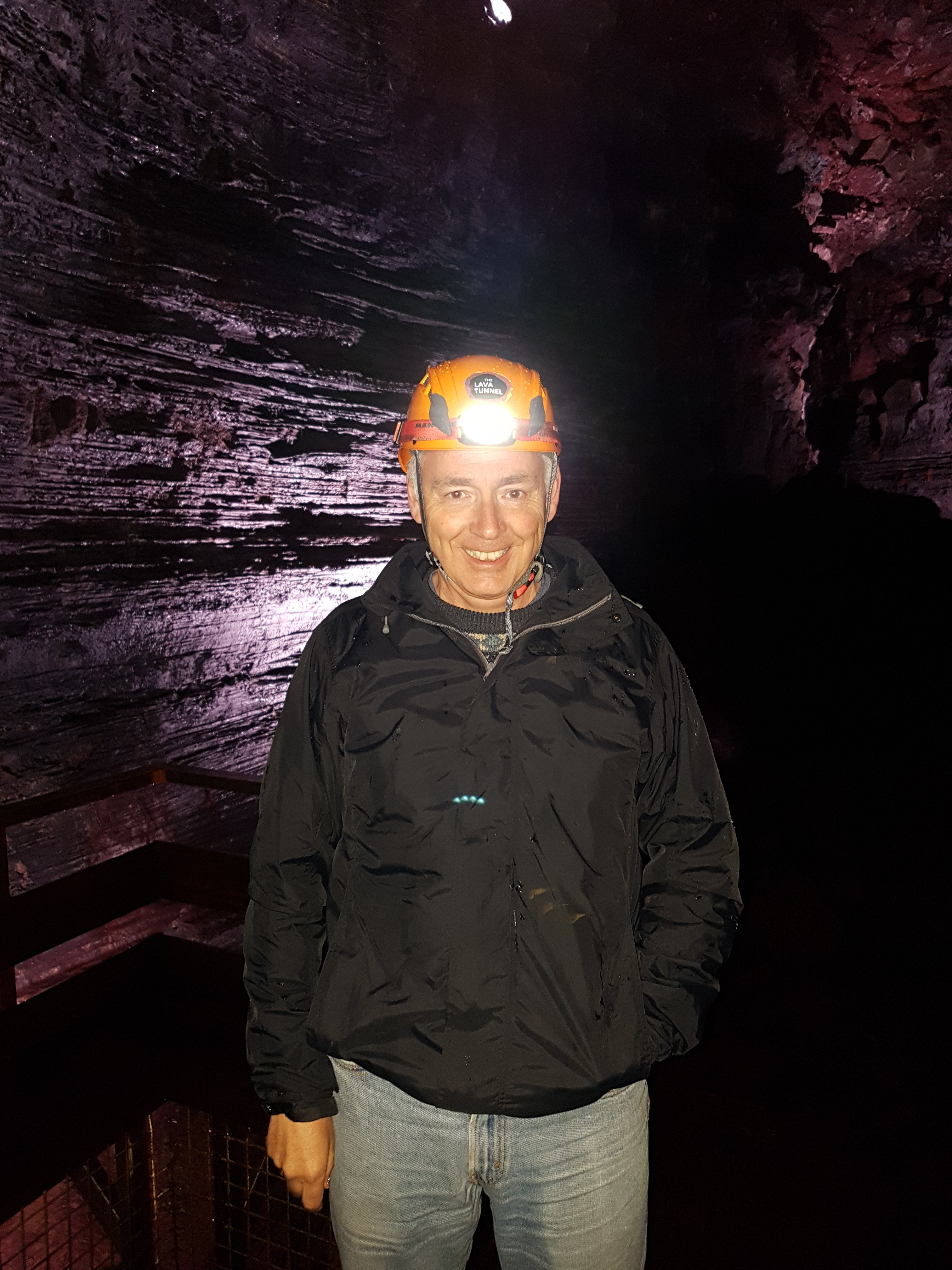Meet Martin Fowler – geochemistry expert

A good high school chemistry teacher and a colleague with his feet on the desk inspired Martin Fowler to pursue a career in organic geochemistry.
“My chemical side came as I had a very good chemistry teacher at high school growing up in England. My geological side came from being always interested in the outside and the world around me,” says Martin Fowler.
He is 64 years old and works as a senior geochemist for APT in Canada. Martin holds a BSc from Leicester University in Chemistry and Geochemistry, and both a MSc in Organic Geochemistry and Organic Petrology, and a PhD in Organic Geochemistry from the University of Newcastle-upon-Tyne.
“While studying for my BSc, I was expected to get a summer job that was related to the degree. Mine was with the Thames Conservancy Water Authority to do water analyses. This was mostly repetitive measurements of Chemical and Biological Oxygen Demand, Nitrates, and Phosphates,” he says.
By the end of the summer, this was getting a little tedious.
“There was one person in the lab that I had little contact with but who had the largest office and a lab adjacent that was full of machines with blinking lights. He always seemed to have his feet on his desk, reading the paper much of the time. I asked one of the other techs what he did and they said in a revenant tone that he was the organic geochemist,” he laughs.
When Martin was looking for post-grad places at the end of his degree, he remembered this and decided to do a one-year course based Organic Geochemistry MSc to see what it was all about. He enrolled at the University of Newcastle-upon-Tyne, one of the premier schools for this discipline.
“I enjoyed this and was offered a PhD in a topic that I was very interested in, using the chemistry of oils and source rocks to look at biochemical evolution of the earth from the Late Proterozoic to the Devonian when land plants evolved. This was a good time to do this project as the technology of gas chromatography – mass spectrometry with computerized data systems– had just evolved and the study of biomarkers (chemical fossils) was just about to explode.
Mr. Worldwide
Although Martin grew up and did his education in the UK, he decided that he wanted to see some of the world after finishing his degree.
“1985 was a good time to be looking for a job and I was lucky to be offered a position at the Geological Survey of Canada in Calgary that started in 1986. I thought I would give it three years, but by that time I was married and hence ended up staying,” he tells.
During his career, Martin has travelled the world and has seen and experienced some unusual things.
“Many years ago, I sampled the gas seeps that are responsible for the ‘everlasting flames’ at three temples in the Dailekh area of SW Nepal. We used the then King of Nepal’s private helicopter to access the sites. At one, I was watched by the priests and an audience of thousands waiting outside the temple. They had never seen a helicopter before or people that looked and dressed like me. I used old whisky bottles, that I had collected from the Katmandu rubbish dump and subsequently cleaned, to collect the gas.”
In 2013, Martin joined APT after the company’s co-founder Nigel Mills approached him.
“I knew that Nigel and others had set up APT after Saga had been acquired by Norsk Hydro. Nigel contacted me about setting up an APT Canada office in Calgary, and I was convinced by Nigel and Tore to join– and here I am, eight years later.”

Collegiate
Martin is currently the only APT Canada employee. He explains that there were others in the past but now it is just him, and he works from home which saves commute and the office rent.
“This does not mean that I feel lonely. APT works as a team and there is plenty of interaction with other APT geochemists, either through video, phone or email. If I were to describe the working environment at APT with one word it would be collegiate.”
He had been working from home for about six months when the Covid-19 pandemic started.
“I am luckier than many in that I have a dedicated office space at home which is now just as messy as my external office spaces were. Hence not much change for me really, except I was unable to meet potential clients and contacts in person. Meeting people in person is what I am looking forward to the most when society opens up again,” he says.
A multidisciplinary approach
During his career, Martin has written more than 100 peer review papers, including “The influence of Gloeocapsomorpha Prisca” (1992) and “Applications of petroleum geochemistry to exploration and reservoir management” (2002) together with Ken Peters. He has also taught many students over the years.
“There has been a big change in the field since I was studying. Previously it was the petroleum geochemists that had the big ideas and fancy equipment. Now, the discipline is to a larger degree dominated by organic geochemists looking at present day and past environments.”
Another trend is that of big data and the ability to be able to process that.
“I think going forward, geochemists are going to have to be multidisciplinary and flexible in what they work on, even if they want to work in the petroleum industry. I would not advise a student today to just concentrate on petroleum geochemistry that relates to the exploration and production of hydrocarbons, but also on the environmental aspects of petroleum extraction and use,” he concludes.
Related Articles
14 Sep 2021

Meet Richard Patience – petroleum geochemistry expert
As a teenager, Richard Patience spent a lot of time hiking in the hills of the UK, especially in south Wales where his school owned an old farmhouse. He became interested in the rocks that made up those hills and decided to study geology and chemistry at university.
Read more >
13 Jul 2021

Meet Scott Granger – regional manager Americas
APT’s regional manager turns 50 this year, but that doesn’t stop him from taking on new challenges.
Read more >
09 Jul 2021

Meet Craig D. Barrie – shale oil production allocation expert
Earlier this year, Craig joined APT as global product director. At APT, Craig will use his experience from unconventional systems and petroleum geochemistry to support operators in the North American market.
Read more >
27 May 2021

Meet Steve Killops – organic geochemistry expert
Dr. Steve Killops has been active in the field of organic geochemistry for about 35 years, in both academic and commercial sectors. He is a former lecturer in organic geochemistry and today, Steve works as a senior geochemist at APT UK.
Read more >